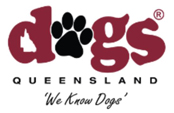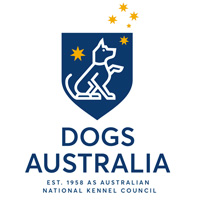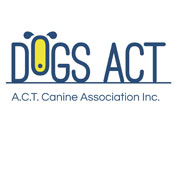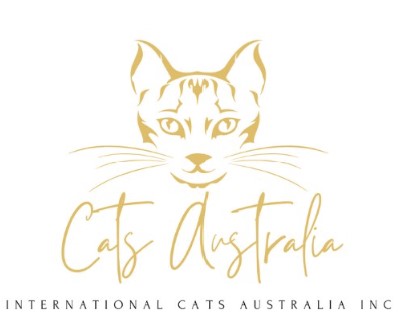How to find a responsible breeder
Finding a responsible breeder is an important part of finding a new pet. There are two key areas to look at - what makes a breeder 'responsible', and then what (if any) registration do they have. A breeders registration type governs how they are regulated and registration alone is not necessarily a guarantee that the animals are bred or cared for according to any consistent guidelines.
Perfect Pets has been helping pet lovers connect with responsible breeders for over 10 years. The icons that appear on our breeder profiles and listings can help you learn more about the breeder and their practices. The breeders answers to a set of key questions can be found in their 'practices and standards' section, which highlights responsible, ethical and caring breeding practices.
Our breeder practices and standards highlight the important questions you should ask if you are thinking about buying a pet from a breeder.
What is a Registered Breeder?
Dog and cat breeders are often referred to as ‘registered breeders’ when they are members of a breed association or club which operates a stud book or register or other breeder association. For example, registration with a nationally recognised State Registering Body (eg, Dogs NSW, Dogs QLD). Sometimes 'Registered breeder’ or ‘recognised breeder’ is referred to when someone has a different type of registration with a local council where rules and guidelines can vary from region to region, council to council.
Registered Breeders on Perfect Pets
We work with official registering bodies, as well as State/Territory Governments (where applicable) to ensure that every breeder on Perfect Pets is appropriately registered. For example, Perfect Pets have integrated new source number validation technology offered by Animal Welfare Victoria, enabling us to easily check if breeders are supplying a valid Pet Exchange Register source number within their advertisements. Requirements vary depending on the State/Territory and/or Council and may include a Supply, Source, Identification, Registration number such as: Breeder Identification Number (BIN), Breeder Exemption Number (BEN), Pet Exchange Register Number (PER), Domestic Animal Business Number (DAB).
ANKC Registered Dog Breeders
All dog breeders on Perfect Pets must be registered with a State or Territory based office of Dogs Australia (formerly the Australian National Kennel Council - ANKC). We work closely with the member offices Australia wide to ensure that every breeder has been fully verified before they are listed on Perfect Pets. Dogs Australia is the original and official registering body for Pedigree dogs in Australia, internationally respected and connected to all other internationally recognised registration councils (eg. UK Kennel Club, American Kennel Club).
Registered Cat Breeders
Cat breeders must hold a current membership with a National and/or State/Territory based association. We work with numerous cat associations representing and guiding breeders in Australia. For contact details see Cat Fancy, Cat Associations and Clubs. Registration information and supply/source numbers (as required) are displayed with all cat breeder profiles and listings on Perfect Pets.
How does Perfect Pets ensure Breeders are ''Ethical'' and ''Responsible''?
We are often asked how we make sure that all of the breeders on the site are ‘’responsible and ethical’’. Because it is not physically possible for us to visit and inspect the premises and practices of every breeder, we take our other checks very seriously. Every new breeder account and every new for sale or adoption listing is manually reviewed before they go live on the site. This review involves a number of checks (beyond registration checks) which often includes talking to other breeders, and breed club executives. If there are any signs, alarm bells, or reports, we follow up, investigate and act accordingly. We have removed breeders, and have no qualms doing this if we discover that they are not reputable, not responsible, if they are large scale breeders, or if there are other concerns that means they don’t fit with the aims of our site. Our priority is to only support reputable breeders. We find that our relationship with breed clubs is very important, and there are some breeds where we only have breeders that been approved by breed club executives. If you have any concerns or complaints about a breeder on Perfect Pets please let us know.
Because we cannot be involved in every interaction and transfer of ownership, we also do our best to provide the prompts and guidance that help our site users have the right expectations when they are dealing with breeders. To summarise: It is so important that when purchasing a puppy or kitten you ask for the following:
- registration details
- a vaccination certificate
- a microchipping certificate
- information about, and proof of testing for health and potential genetic issues
- a vet health check certificate or equivalent paperwork. A health check is usually carried out with vaccination.
A good breeder will also:
- Have planned the litter and make sure that all of the puppies or kittens go to good homes.
- Let you visit them and let you meet the mother and father (if he’s around).
- Have safe and clean living conditions for all the animals in their care.
- Be genuinely concerned about the home that the puppy or kitten is going to. They will want to make sure that you are a good match. That the temperament and needs of the dog or cat will suit you and your lifestyle.
- Be happy to answer questions and will make sure you have all the information you need to for the short and long term care of your new pet.
- Have had the health checked by a veterinarian - including vaccinations & microchipping, and appropriate genetic testing.
- Ensure that the puppy or kitten is free of intestinal worms and fleas.
Genetic Testing
DNA health testing is a vital aspect of responsible and ethical breeding practices for many breeds. With the increase in science and DNA research, there are new tests continually becoming available. An ethical breeder will test their breeding stock for any and all of these tests voluntarily. It should be noted that NONE of these tests are compulsory. You can find providers of genetic testing for animals and collection services here - DNA Testing for dogs and cats.
Puppy farming, 'for profit' breeding & other things to be aware of...
With increasing awareness and concern about large-scale breeding operations most Australian States and Territories are currently reviewing guidelines and legislation relating to dog and cat breeders.
At present, guidelines and standards vary significantly between the States and Territories, governing bodies, interest groups and breeders. There are, however, some generally common assertions that uphold non-exploitative, caring and ethical practices that might serve as a guide when researching the breed you're interested in and looking for a breeder.
- The number of breeding females is a good indication of the scale of the breeding operation. While some states suggest bans on puppy farms with more than 10 breeding females, the potential numbers at these levels would still most likely look like a commercial situation.
- Breeders must be aware of any hereditary diseases/conditions in their breed and must monitor them carefully. For example - german shepherds and rottweilers require hip and elbow scores on the parents, while in some breeds dna testing or hip and elbow score is compulsory. Ragdoll cat breeders should DNA test for pkd and hcm - the lethal diseases Ragdolls can carry.
- Breeding should commence at an appropriate age and be at a frequency that ensures that the female has time to properly raise her litter and then rest and recover adequately.
- For dogs – 12+ months for first litter, one litter per year, no more than 5 litters in lifetime, and not past 6 years of age.
- For cats – 9 months for first litter, no more than 3 litters in 2 years, and not over 6 years of age.
- Puppies are not to be sold before they reach 8 weeks of age and kittens before they are 12 weeks of age.
- Puppies and kittens must be vaccinated, wormed, microchipped, vet checked, with information and documentation provided to the buyer.
- Breeders should ensure that there are arrangements for the desexing of cats and dogs not destined for responsible planned breeding. The age to desex kittens and puppies can be dependent on factors such as breed, size, health issues or other factors. Breeders sometimes organise a contractual agreement with new owners that ensures they will desex at the appropriate time.
Looking for a Purebred puppy?
The Australian National Kennel Council has a strict set of guidelines regarding the breeding and ownership of temperamentally and physically sound pure bred dogs. If you purchase a pup from an ANKC registered breeder you will receive all of the certificates listed above as well as 'pedigree papers'. The ANKC Guidelines for Dog Breeders is clear regarding motives for breeding and states that "The common concept that pure bred puppies are a means of making money is, in a reality, a misconception and, alone, not a valid reason to bring otherwise unwanted dogs into being. ..we should all be well aware of the Code of Ethics which all members are required to follow, the first of which is the statement, “I shall breed only to improve the breed…”
Also see the RSPCA online Puppy and Dog Buyer's guide for more information.
Quick links to Australian cat breeder lists by State:
Cat Breeders, Melbourne - Victoria, Cat Breeders Canberra - ACT, Cat Breeders, Sydney - NSW, Cat Breeders, Brisbane Queensland, Cat Breeders, Hobart - Tasmania, Cat Breeders, Adelaide - South Australia, Cat Breeders, Darwin - Northern Territory, Cat Breeders, Perth - Western Australia.
Quick links to registered dog breeder lists by State:
Dog Breeders, Melbourne - Victoria, Dog Breeders, Canberra - ACT, Dog Breeders, Sydney - NSW, Dog Breeders, Brisbane - Queensland, Dog Breeders, Hobart - Tasmania, Dog Breeders, Adelaide - South Australia, Dog Breeders, Darwin - Northern Territory, Dog Breeders, Perth Western Australia.




.jpg)

.jpg)


.jpg)
.jpg)
.jpg)
.jpg)
.jpg)
.jpg)
.jpg)

.jpg)

.jpg)